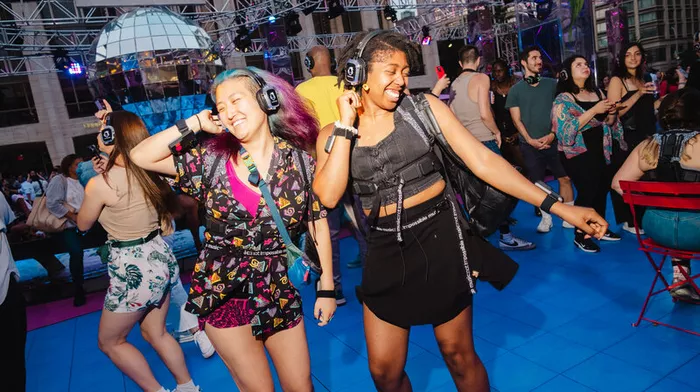Unveiling the Unassuming Hip-Hop Haven
When one thinks of hip-hop and rap, cities like New York, Los Angeles, or Atlanta might instantly come to mind. However, in the shadows of these more illustrious musical hubs, Boston has been quietly building its reputation as a seminar rap city. With a burgeoning underground scene and a pool of incredibly talented artists, Boston’s hip-hop community has been making its mark on the industry, slowly but surely. In this article, we’ll delve into how this unassuming city has triumphed as a seminar rap powerhouse and how its artists have been carving their own unique path to success.
1. A Historical Perspective
In the early days of hip-hop, Boston was not a prominent player in the scene. The genre, which originated in the South Bronx during the 1970s, took some time to spread its roots to other cities. New York quickly became the epicenter of hip-hop culture, and the West Coast soon followed suit with its distinct sound. Boston, on the other hand, was still finding its musical identity, overshadowed by its larger and more prominent counterparts.
2. The Underdog Emerges
But being an underdog has its perks. Without the immense pressure of being in the spotlight, Boston’s hip-hop artists had the freedom to experiment and explore their craft without conforming to popular trends. This allowed them to create a unique sound that was a blend of the rawness of East Coast rap and the laid-back vibes of West Coast hip-hop.
3. The Impact of Education and Seminars
One crucial element that fueled Boston’s rise in the seminar rap scene was its vibrant educational institutions. Boston is renowned for its universities and colleges, attracting students from all over the world. These students brought their diverse cultural influences and music tastes, enriching the local hip-hop scene.
Moreover, many educational institutions in Boston started organizing seminars and workshops that focused on hip-hop culture, rap lyrics, and music production. These seminars became a breeding ground for aspiring artists, providing them with the tools and knowledge needed to hone their craft.
4. Building a Supportive Community
Another essential aspect of Boston’s success was the creation of a tight-knit and supportive hip-hop community. Unlike the cutthroat competition that can be found in larger music scenes, Boston’s rap artists rallied together to uplift and collaborate with one another. This collaborative spirit led to the emergence of rap collectives and groups that supported each other’s shows, promoted their music together, and collectively pushed the boundaries of the seminar rap genre.
5. Embracing Diversity and Authenticity
Boston’s hip-hop scene thrived by embracing diversity and authenticity. Artists from different backgrounds and cultures infused their music with personal experiences, creating narratives that resonated with their audiences. Rather than trying to mimic the sounds of other cities, Boston’s rappers stayed true to their roots, speaking about their struggles, dreams, and triumphs in their own voices.
6. Making Waves Online
As the internet became a game-changer in the music industry, Boston’s rap artists adeptly leveraged social media and online platforms to reach a global audience. They created engaging content, shared their music videos, and participated in online rap battles, garnering attention from fans and industry insiders alike. This online presence allowed them to gain recognition beyond their local boundaries, propelling them into the national and even international spotlight.
7. The Role of Local Radio Stations and Blogs
While online platforms played a significant role, Boston’s local radio stations and blogs were equally crucial in boosting the city’s hip-hop scene. These platforms dedicated airtime and space to showcase local talent, giving them the exposure needed to expand their fan base. The support from the local media helped validate Boston’s rap community and attract attention from record labels and promoters.
8. Breaking the Stereotypes
Boston’s success in the seminar rap scene also shattered stereotypes associated with the city’s musical identity. Often considered the birthplace of rock and roll, Boston had been typecast as a city predominantly focused on other genres. However, the rise of the city’s rap artists showcased its versatility and proved that it could excel in various musical styles.
9. Music Festivals and Live Shows
Boston’s seminar rap scene thrived in live performances and music festivals. Artists took to the stage, delivering captivating performances that left audiences mesmerized. Local music festivals provided a platform for emerging talents to showcase their skills alongside established acts, further cementing Boston’s status as a seminar rap city.
10. Recognition and Success Stories
Over time, Boston’s seminar rap scene began to gain recognition and accolades. Local artists secured record deals, received critical acclaim for their albums, and earned nominations and awards. The success of artists like Slaine, Termanology, and Cousin Stizz put Boston firmly on the hip-hop map.
Conclusion
In conclusion, while Boston may not have been an early contender in the hip-hop landscape, it has undeniably emerged as a seminar rap city worth reckoning with. Through its dedication to authenticity, collaboration, and community building, Boston’s hip-hop artists have quietly triumphed, carving their unique path in the rap industry. As they continue to make waves online, break stereotypes, and gain recognition, the city’s seminar rap scene is poised to achieve even greater heights in the years to come. So, the next time you think of hip-hop, remember that Boston is a city that is making its mark, one seminar rap at a time.

